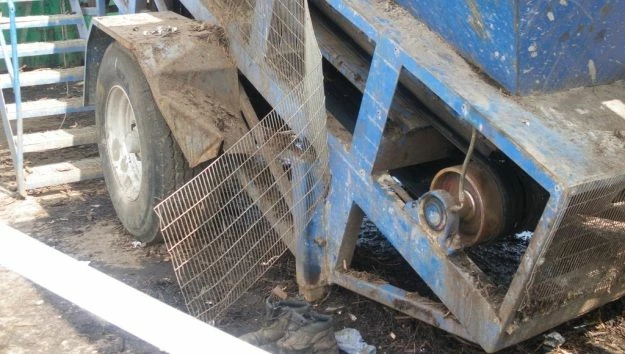
Partner Article
Soil firm fined £80,000 over life-changing injuries
A major topsoil supplier has been fined £80,000 after a worker suffered life-changing injuries at its plant in Cheshire.
Piotr Chrzanowski had been helping to free a blockage on a conveyor belt on 16 July 2013 when his hand became trapped, pulling him in. He has lost the use of both his arms as a result of his injuries.
Freeland Horticulture Ltd was prosecuted by the Health and Safety Executive (HSE) after an investigation found the 20-year-old, from Ellesmere Port, had been able to gain access to a dangerous part of the machine while it was still operating.
Liverpool Crown Court heard that Mr Chrzanowski had been working on a machine which processes green waste material and turns it into a peat replacement product at the company’s site on Newbridge Road in Ellesmere Port.
He had been trying to free some blocked material when he became caught by the rotating drum underneath the conveyor belt.
Mr Chrzanowski suffered breaks to his left arm and collar bone, crush injuries, and torn muscles across his back and shoulders. He has been unable to return to work due to the extent of his injuries.
The court was told Freeland Horticulture had failed to ensure a safe system of work was in place for clearing blockages, and workers had not received instructions or information on how to carry out this work.
HSE issued an immediate Prohibition Notice shutting down the entire production line until the machine guards were improved and a system put in place to cut the power before maintenance work could be carried out.
Freeland Horticulture Ltd, of Firth Road in Lincoln, was fined £80,000 and ordered to pay £3,439 in prosecution costs after pleading guilty to two breaches of the Health and Safety at Work etc Act 1974 on 19 November 2014.
HSE Inspector Jane Carroll said: “Mr Chrzanowski has suffered devastating injuries that will affect him for the rest of his life because Freeland Horticulture failed to take its responsibilities for health and safety seriously.
“It simply shouldn’t have been possible to access dangerous parts of the machine while it was still operating – and workers shouldn’t have been put in a position where they reached in to clear blockages by hand.
“I’d urge manufacturing companies to think carefully about the real dangers facing their workers and then take action to improve safety.”
This was posted in Bdaily's Members' News section by Simon Malia .








 Raising the bar to boost North East growth
Raising the bar to boost North East growth
 Navigating the messy middle of business growth
Navigating the messy middle of business growth
 We must make it easier to hire young people
We must make it easier to hire young people
 Why community-based care is key to NHS' future
Why community-based care is key to NHS' future
 Culture, confidence and creativity in the North East
Culture, confidence and creativity in the North East
 Putting in the groundwork to boost skills
Putting in the groundwork to boost skills
 £100,000 milestone drives forward STEM work
£100,000 milestone drives forward STEM work
 Restoring confidence for the economic road ahead
Restoring confidence for the economic road ahead
 Ready to scale? Buy-and-build offers opportunity
Ready to scale? Buy-and-build offers opportunity
 When will our regional economy grow?
When will our regional economy grow?
 Creating a thriving North East construction sector
Creating a thriving North East construction sector
 Why investors are still backing the North East
Why investors are still backing the North East